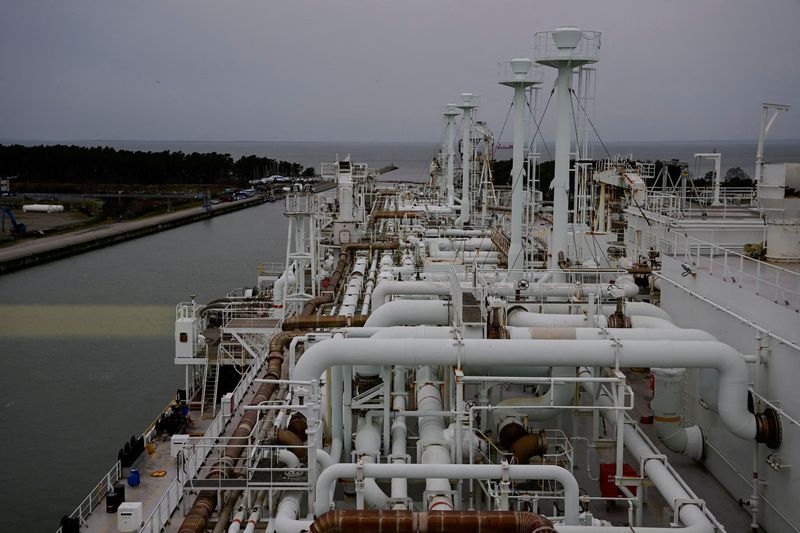BERLIN (Reuters) - Germany is unlikely to face a gas shortage in the coming winter and should halt the conversion of floating liquefied natural gas (LNG) terminals to fixed ones, the DIW economic institute said in a study seen by Reuters on Wednesday.
In the most likely scenario, Germany would have sufficient supply of around 87 billion cubic metres (bcm) this year if demand remains 12% below the 2018 to 2021 average, the study said.
The total supply could even rise to 94 bcm, around the same level as in previous years, if Germany's import capacities for liquefied natural gas (LNG) were utilised to 95%.
With the LNG terminals in Belgium and the Netherlands, as well as floating facilities in Germany, there is sufficient import capacity for LNG to be able to meet rising demand in Germany. "In particular, this can be achieved through a higher willingness to pay than in other world regions," DIW said.

However, because of the improved gas supply situation, the institute advocates stopping the conversion of floating LNG terminals to fixed ones, saying the gas industry took the opportunity that arose during the uncertainties in spring 2022 to build projects far beyond the foreseeable sensible volume.
Germany is phasing out the use of fossil natural gas in the medium term, said the institute, meaning the burning of natural gas must be ended as part of the path to climate neutrality.